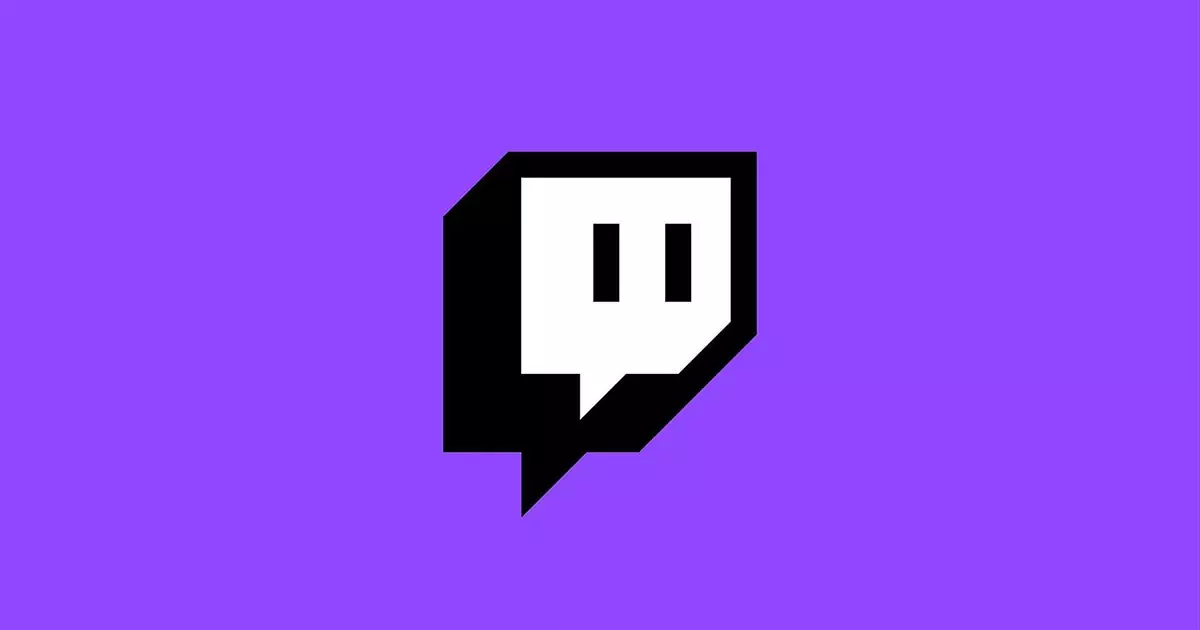In an environment as interconnected as the gaming community, public figures wield substantial influence. This became painfully clear when popular Twitch streamer Zack Hoyt, known as Asmongold, faced a two-week suspension for expressing extreme views related to the ongoing conflict between Israel and Hamas. This incident has ignited a complex discussion surrounding accountability for hate speech in digital spaces, particularly on platforms that serve as vital forums for youth and public opinion.
The backdrop of this controversy is fraught with tension. In October 2023, a notorious escalation in violence resulted in numerous deaths and widespread devastation. The dynamics of the Israel-Palestine conflict are exceedingly intricate, characterized by decades of animosity and mutual grievances. However, Asmongold’s statements, which suggested that he found justification in the alleged genocidal actions against the Palestinian people, have turned heads and raised alarms about the normalization of such rhetoric in mainstream discourse.
Within his streaming session, Asmongold deemed Israeli military actions as an acceptable response to what he interpreted as a form of inherited violence ingrained in Palestinian culture. His comments were laced with sweeping generalizations about Muslims and the Islamic faith, detracting from the individual complexities that characterize an entire population.
He explicitly claimed, “I don’t give a fuck,” showing a startling disconnection from the real human suffering involved. This tone strikes not only as controversial but as deeply troubling, resting on the assumption that cultural or religious beliefs render entire demographics culpable for a conflict that involves multi-faceted political, socioeconomic, and historical dynamics.
Such perspectives, when espoused by individuals with large audiences, can contribute to a dangerous normalization of hate speech and dehumanization. The passive acceptance of these ideas only serves to perpetuate cycles of violence, as they strip individuals of their identities and reduce them to the sum of their perceived cultural traits—a phenomenon often termed as ‘calculated dehumanization.’
Interestingly, Twitch’s decision to issue a mere two-week ban rather than a more permanent measure raises questions regarding the streaming service’s commitment to addressing hate speech. According to their community guidelines, behavior motivated by hatred or intolerance is clearly prohibited. Yet, the leniency exemplified in Asmongold’s case resonates with a concerning trend observed in how social media platforms often tend to sidestep harsher punishments for high-profile figures.
This double standard is further illuminated by comparing Asmongold’s suspension to the reinstatement of controversial figures, such as Donald Trump, who had previously faced bans for inciting insurrection and promoting hate. Such actions suggest not only a selective enforcement of community guidelines but also reveal the broader implications of prioritizing user engagement, profitability, and audience retention over substantive action against harmful rhetoric.
The Backlash and Subsequent Apology
As much as the internet can be a breeding ground for divisive sentiments, it is also an arena ripe for accountability. Following an outcry from viewers and community advocates alike, Asmongold issued an apology, acknowledging the insensitivity of his comments while asserting that no one should face destruction of life due to differing views.
His admission reflects a critical turning point in understanding the responsibilities that come with having significant social capital. Public figures must recognize that their statements can have profound societal implications, contributing to the framework of ideologies that normalize hatred and violence. However, the sincerity of his apology remains to be scrutinized; can a fleeting acknowledgment sufficiently atone for the considerable harm done?
Challenges in Addressing Hate Speech in the Digital Age
As streaming platforms like Twitch become ubiquitous avenues for dialogue and information sharing, the question of how to tackle hate speech is more complex than ever. Influential streamers can shape narratives and opinions, thereby enhancing the stakes associated with their communications. Despite the challenges, it is vital for platforms to embrace a more consistent and equitable approach towards upholding community standards while holding their most influential members accountable.
This incident serves as an essential reminder of the responsibilities that come with public visibility. As conversations surrounding the Israel-Palestine conflict continue to unfold, it is crucial for influencers and platforms alike to engage with greater care, ensuring that discussions remain rooted in empathy and understanding rather than escalating into harmful rhetoric.
As we reflect on the Asmongold incident, we must consider whether social media companies can truly balance the scales of freedom of expression with the imperative to foster a safe and constructive environment. In an age where words have the power to incite action—both positive and negative—this balance will dictate the nature of conversations that will shape our societal consciousness in the years to come.

